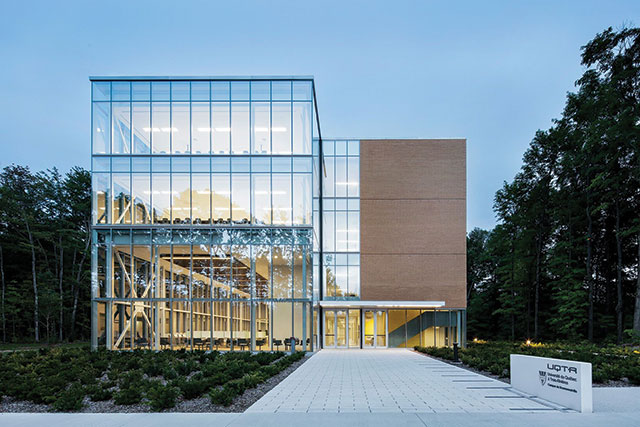UQTR: Research driven by innovation and dedicated to the communities
 UQTR campus in Drummondville, Quebec.
UQTR campus in Drummondville, Quebec.
In 2024, the Université du Québec à Trois-Rivières (UQTR) will surpass $50 million in research grants for the first time in its history, reaching $53.9 million - a 13.5% increase over 2023. UQTR is henceforth recognized as a leader in research and innovation, particularly within the communities it serves. Renowned for its collaborations with industrial, international, and philanthropic partners, UQTR was ranked 2nd in its category in growth of corporate and international government research income and 3rd in non-profit research income this year, making it a prime location for research and innovation partnerships.
UQTR's distinctive approach combines knowledge driven by an awareness of contemporary societal changes - climatic, environmental, social, cultural and economic - enabling it to play a crucial role in a constantly evolving world.
The university's UQTR's unique infrastructures in energy, such as the Hydrogen Research Institute (IRH) and the Institute of Innovations on Ecomaterials, Ecoproducts and Ecoenergy (I2E3), along with its freshwater research vessel, the Lampsilis, and the CNIMI (National Inter-Order Centre on Intelligent Manufacturing) in artificial intelligence applied to industry, exemplify UQTR's leadership in research and innovation in energy, the environment, and digital transitions. Its nine research chairs in these fields - including four Canada Research Chairs, three partnership chairs (Hydro-Québec, Innergex, UNESCO), and two internal chairs - highlight UQTR's focus as it assumes the role of catalyst within the Energy Transition Valley, an innovation zone designated by the Quebec government in May 2023.
Committed to knowledge integration and interdisciplinary science, UQTR also excels in the humanities and social sciences. It conducts research on the social impact of digital technology - on collective imagination, social bonds, cybersecurity, and population dynamics - as well as its political and ethical implications, addressing issues such as freedom of expression, democratic coexistence, and AI ethics.
At the intersection of social and health sciences, UQTR is dedicated to promoting population well-being. It develops distinctive approaches and tools in education (early childhood inclusion, children's and adolescents' sports practices, nutrition), work and employment (worker well-being, physical and mental health, professional motivation and performance, stress), and health services (rehabilitation, intervention in health and public service organizations).
Through its extensive research and innovation activities, UQTR aims to advance and enhance its environment while preparing students to thrive in a changing world, equipping them with the knowledge and skills to seize future opportunities.


 UQTR campus in Drummondville, Quebec.
UQTR campus in Drummondville, Quebec.